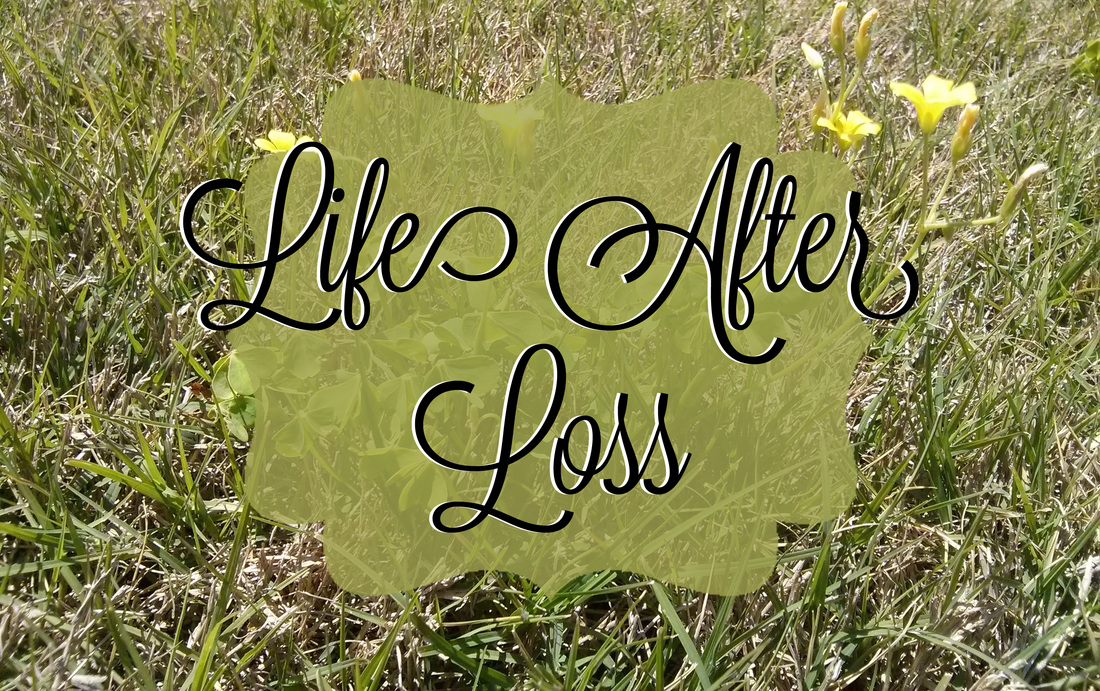|
Luke 24:13-35 CEB On that same day, two disciples were traveling to a village called Emmaus, about seven miles from Jerusalem. They were talking to each other about everything that had happened. While they were discussing these things, Jesus himself arrived and joined them on their journey. They were prevented from recognizing him. He said to them, “What are you talking about as you walk along?” They stopped, their faces downcast. The one named Cleopas replied, “Are you the only visitor to Jerusalem who is unaware of the things that have taken place there over the last few days?” He said to them, “What things?” They said to him, “The things about Jesus of Nazareth. Because of his powerful deeds and words, he was recognized by God and all the people as a prophet. But our chief priests and our leaders handed him over to be sentenced to death, and they crucified him. We had hoped he was the one who would redeem Israel. All these things happened three days ago. But there’s more: Some women from our group have left us stunned. They went to the tomb early this morning and didn’t find his body. They came to us saying that they had even seen a vision of angels who told them he is alive. Some of those who were with us went to the tomb and found things just as the women said. They didn’t see him.” Then Jesus said to them, “You foolish people! Your dull minds keep you from believing all that the prophets talked about. Wasn’t it necessary for the Christ to suffer these things and then enter into his glory?” Then he interpreted for them the things written about himself in all the scriptures, starting with Moses and going through all the Prophets. When they came to Emmaus, he acted as if he was going on ahead. But they urged him, saying, “Stay with us. It’s nearly evening, and the day is almost over.” So he went in to stay with them. After he took his seat at the table with them, he took the bread, blessed and broke it, and gave it to them. Their eyes were opened and they recognized him, but he disappeared from their sight. They said to each other, “Weren’t our hearts on fire when he spoke to us along the road and when he explained the scriptures for us?” They got up right then and returned to Jerusalem. They found the eleven and their companions gathered together. They were saying to each other, “The Lord really has risen! He appeared to Simon!” Then the two disciples described what had happened along the road and how Jesus was made known to them as he broke the bread. When I moved back to Georgia I was excited about rekindling my friendship with someone I used to know, Shelly. We were friends in high school. We hung out during choir class. We went to prom together as a giant super group. She was real, and I loved it. As chance would have it, she begun going to the church I attended as a youth. With her new husband, I could see double dates, and the opportunity to just be openly geeky. Unfortunately, not long after I moved back, she passed away. I wept at her funeral. I was such a bad friend. Only I was to blame for our friendship falling through the cracks. When she died I wanted a miracle. I wanted it to be a dream. Like other friends I have prematurely lost to illness, I wanted to know why. Why did God take someone with so much potential? Jesus teaches us how to talk to someone in the midst of loss The disciples in our scripture had a lot on their minds.. In many ways they were dealing with an "end of life" crisis. Jesus had died. This is not an easy discussion to have only two weeks after Easter. We want to stay in the ressurection. We can easily Google images of a risen Christ but, let's remember the image that is most startling to us, Christ dead. It happened. It had to happen. After all, we can talk all day about how he was fully divine but he was also fully human. The last I checked humanity still suffers from a 100% mortality rate. It doesn’t matter how rich, smart, or lucky you are- we all die. The disciples, they wanted a miracle, and I am not talking about rising from the dead. If they were searching for a resurrection miracle the disciples never would have been trying to fight back when Jesus was arrested, Peter never would have been ashamed to admit he was a disciple, and Thomas (with the other disciples) would have always believed. The miracle the disciples wanted to see, was salvation that completely skipped the whole death issue. So in that mindset, Cleopas and the other disciple were walking from Jerusalem to Emmaus. They were feeling all the normal feelings associated with loss. They were obviously sad. (It is the only direct emotion attributed to them.) They were probably also angry. If they believed Jesus had come to redeem God’s chosen people the one group the disciples would have wanted to see stand up and help would have been the Sadducees and Pharisees. Instead their tone comes across apparently hostile towards the Jewish leaders as Cleopas explains it was them who instigated the crucifixion of Jesus. Also, because they didn’t get the miracle they wanted they couldn’t see a miracle actually occurred. So, if you read the scripture you will notice how easy it is to read Cleopas’ tone as sarcastic when talking about the women at the tomb: (Oh yeah, the disciples totally believed the women when they spoke of angels at the tomb. As Cleopas said to Jesus, “Some of those who were with us went to the tomb and found it just as the women had said; but they did not see them.”) Do you think some of the disciples maybe took the women aside and tried to justify what they saw? Perhaps they told them it wasn’t angels but the way the light reflected off the tomb? Perhaps they said they were sleepy or too emotional? I just wish to add, if I believed the story when someone told me Jesus was alive again, the last thing I would do would be head out of Jerusalem. This is what Cleopas and the other disciple were doing. All signs point to, they didn't believe. Jesus knew the disciples were thinking and talking about the un-resurrected Christ while walking along the road. Was there anything the two disciples could have told Jesus that wasn’t already understood? No. Jesus understood exactly what kind of suffering the disciples were facing. So, Jesus did not enter into the conversation with, “I understand,” or “stop moping because there is nothing to mope about.” Instead, he asks a question, “What are you talking about as you walk along?” When we pray in the midst of crisis God wants us to communicate! Open up, tell what you feel. Be honest about it. Cleopas was honest. He was sad, angry and skeptical. Jesus was not condemning after hearing any of those feelings. They needed to vent. They needed to express how they believed their hopes and wishes for a miracle had not come to fruition. It is only after they were willing to open up and share, Jesus could begin the healing. In that life continues. We can celebrate, thanks to the death and resurrection in Jesus Christ, that death is not the final answer for those we love and care about. We also have to realize, their death is not the final answer for us either. We must continue in this world. Sometimes it is difficult, especially if you are dealing with the loss of someone very dear and close to your heart. Life becomes very trying without that person in your life to fill the void left in their absence. If you find yourself in that place remember the disciples. They gave up everything to follow Jesus: family, friends, and jobs. They loved him and he was gone. God did not come to obliterate death, but to fix life. The problem the disciples were trying to overcome, and did not understand, was God did not come to obliterate death, but to fix life. Eternal life on earth is meaningless when it’s filled with so much pain, suffering, and evil. The disciples felt their prayers were left unanswered. That is an easy mindset to come to when we are searching for our answers and not God’s answers. I guess what it comes down to is within all the cosmic trials and tribulations death is not the final answer, but it is still on the test. We still have to face it and deal with it. There was no chariot of fire for Jesus to carry him away from his pain and suffering and there is no flaming chariot for us. Sometimes life means facing the facts. Unless our names are Elijah or Enoch, and we lived over 2,000 years ago, our time will come. There was a time, over a decade ago, one of my friends passed away. I can remember I was sitting in my car, in my driveway. For the longest time I just sat there in silence, wondering what to do. Part of me even questioned prayer. God knew every thought rolling through my head during that time of loss. What could I pray to God that wasn’t already known? In the end I decided it was better to try to verbalize something than remain quiet. Even if it didn’t change anything regarding God’s knowledge of the past events or my emotional and spiritual life, it felt good to release. Looking back, I wish I could have given myself the Emmaus scripture. God has plans, even after death It seems strange to talk about the end of life so close to the recent celebration of new life: Easter. But, in some ways, it is fitting. When I was pregnant with my first child, my Great-Grandmother was on her death bed. She had been talking about death for most of my life. Finally, two decades after she lost her husband it was her turn. I knew she was finally ready to go. We had so much warning, it was sort of a blessing, I was able to take a trip to Kansas City to say good bye. I was able to let her know her third great-great-grandson was going to born in April. It was a gift to be able to say goodbye like that. I know many don't get that opportunity. A few months later Aeden was born and my sister gave me a book, a memory book called, On the Day You were Born. It had places inside to put pictures. There is one page in that book that reminds me of my grandma even to this day. The page reads: “On the day you were born the waves washed the beaches clean for your footprints.” My grandma left this world as my son entered it. Eventually footprints must be washed clean for the next tiny feet that walk this world. The disciples had work to do and they had to say goodbye and get to the work. Jesus was still going to be there but not in the flesh anymore. We do not walk this path alone. It was time for the disciples to become apostles. Just like it was time for me to move from title great-granddaughter to mom. I love you Jesus, I love you Grandma, and I love and miss all the friends who have passed before me. I hope you are proud of me and the choices I have made as I continue to strive to be the best disciple, mother, and friend I possibly can be. If you like what you are reading there are many ways to connect:
And as always, contributions are greatly appreciated. |
Categories
All
Archives
October 2023
|




 RSS Feed
RSS Feed